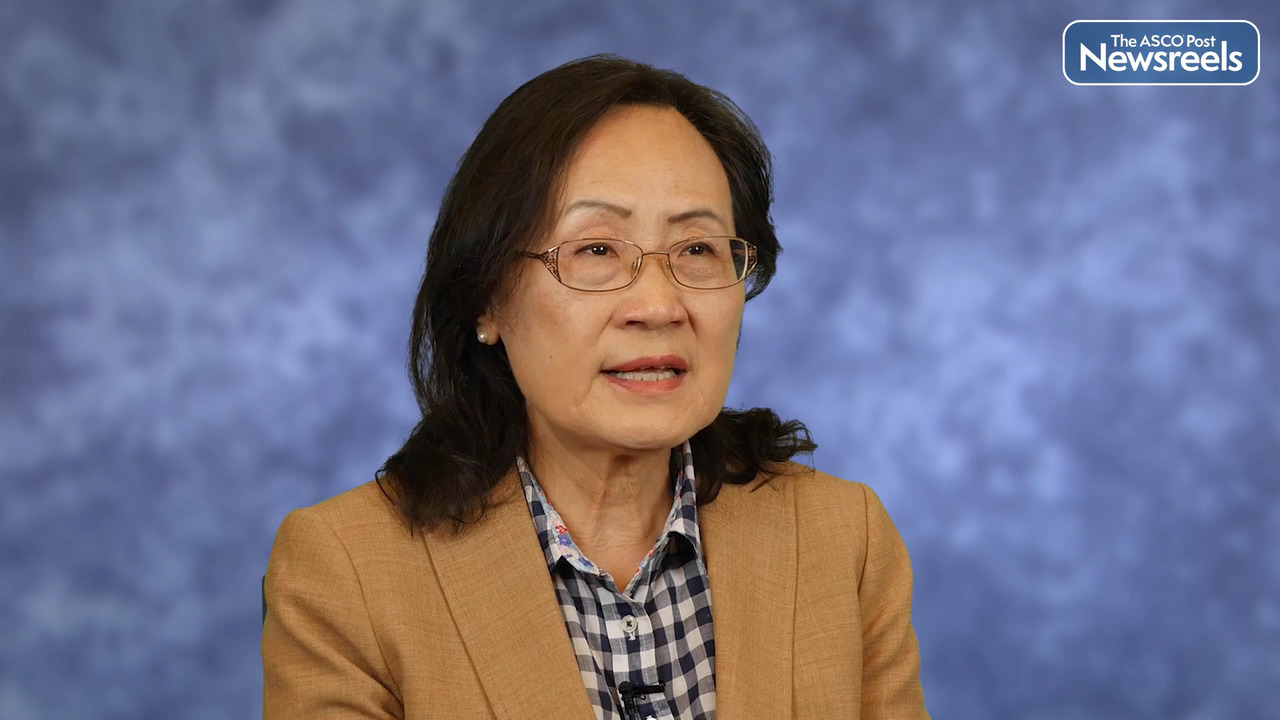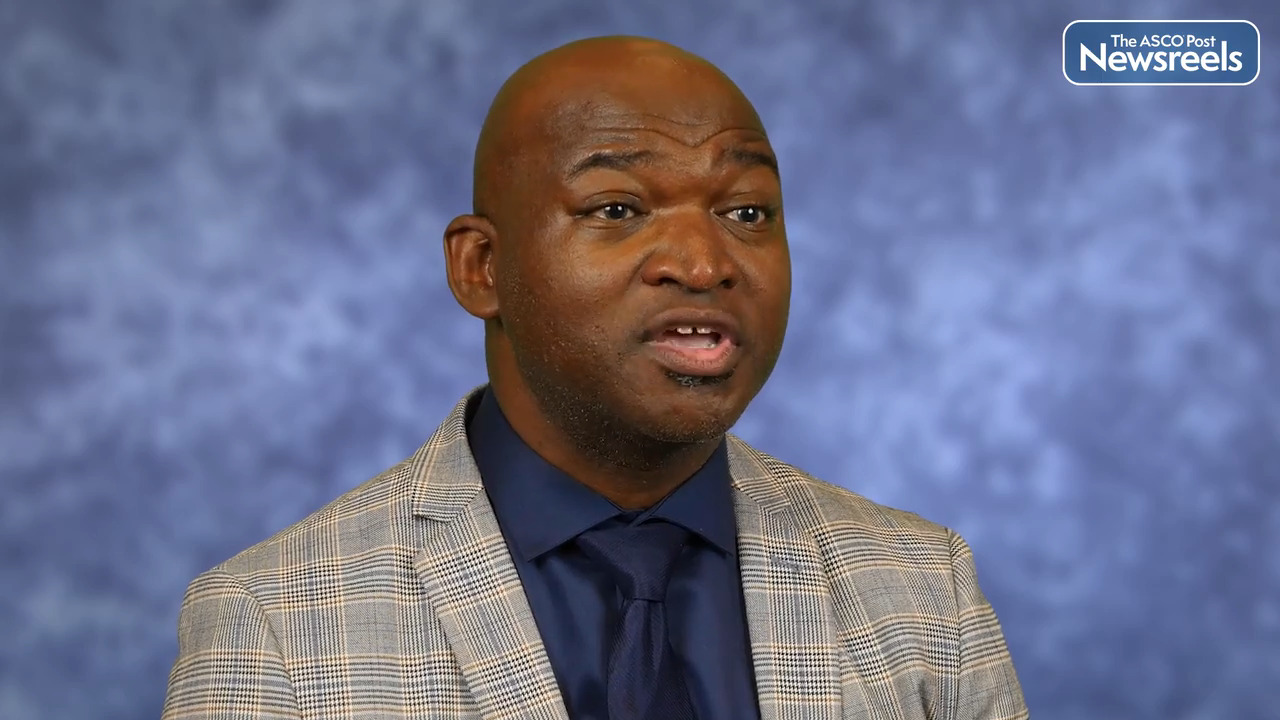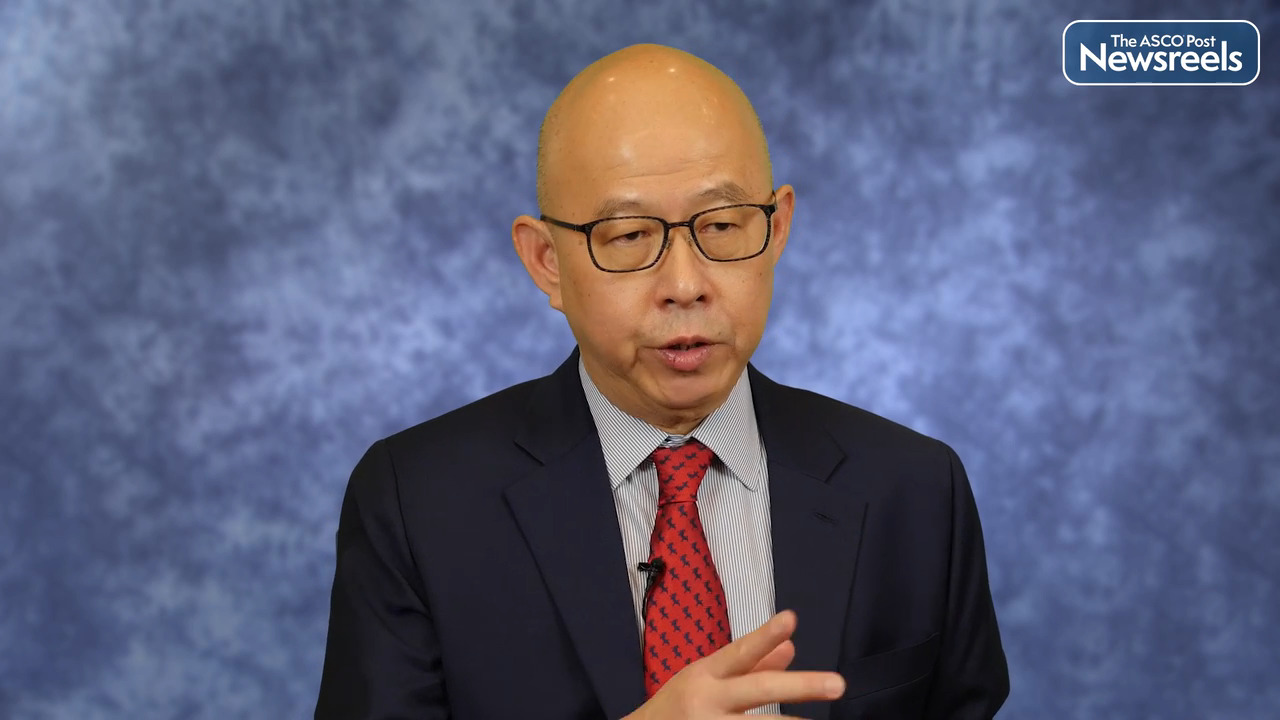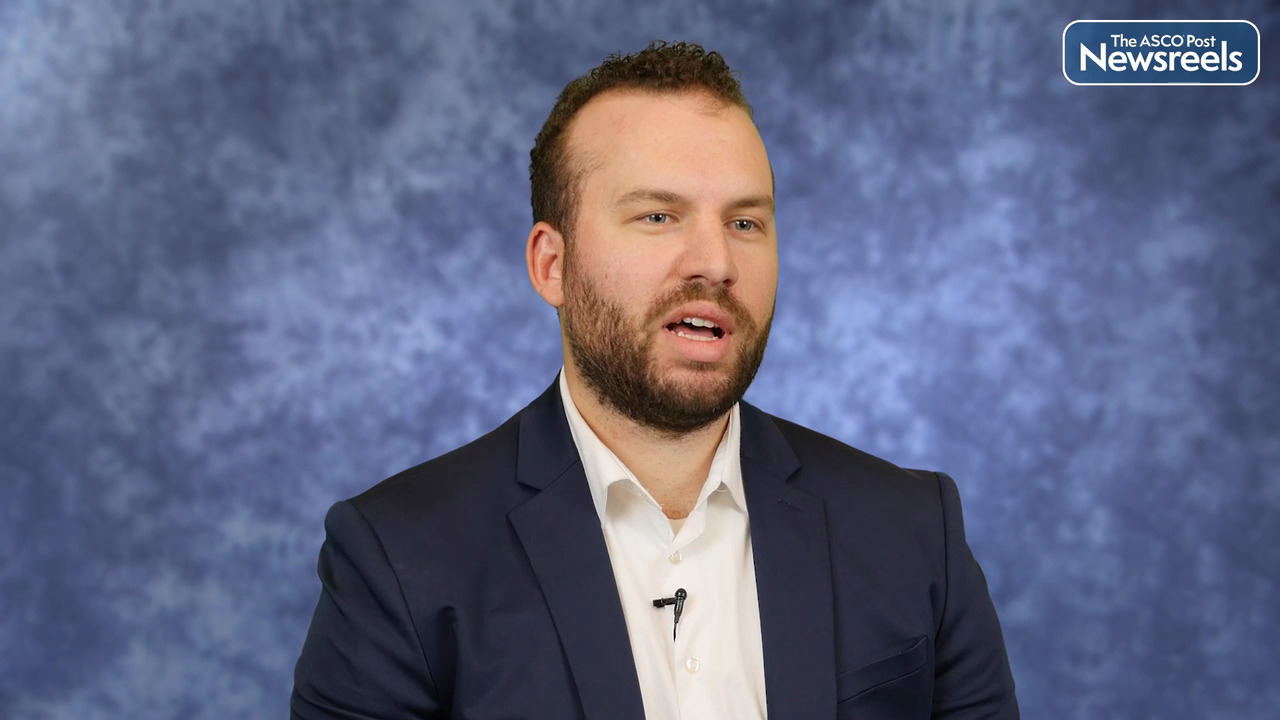Transcript
Disclaimer: This video transcript has not been proofread or edited and may contain errors.
We now have four FDA-approved PARP inhibitors for various indications in patients with different cancers. This has really made a huge difference to patients lives. However, even in the most sensitive of patients, for example, patients with BRCA 1 and BRCA 2 mutated cancers, not all patients will respond. In addition to that, even in patients who respond, the chances of resistance coming in, leading to resistance and disease progression is still a near inevitable consequence, and therefore we really need better treatment options for patients. And a rational approach is really to try and develop combinations that make sense to the biology of the cancer as it evolves over time.
So, with that in mind, in this clinical trial that I presented, we combined the ATR inhibitor camonsertib with three different PARP inhibitors, olaparib, talazoparib, and niraparib, to try and optimize the use of this combination in terms of a therapeutic window that is well tolerated, but would also lead to efficacy. In the past, the concomitant combinations of high doses of these drugs has led to overwhelming toxicities in patients because of overlapping toxicities, including myelosuppression, fatigue and GI symptoms. So, on this clinical trial, we use low dose intermittent regimens of the ATR inhibitor, camonsertib, and the three different PARP inhibitors in combination.
And we found that this was safe and well-tolerated in patients. There were hematological events observed, but these were transient and reversible with dose interruptions. No prophylactic growth factors were required on trial. Importantly, antitumor activity was observed in patients with platinum and PARP inhibitor resistant tumors with predefined DDR genomic alterations. And the durable antitumor activity was encouraging with a clinical benefit rate of 48% in the efficacy population of 90 patients. And in patients with late-line ovarian cancer, which is a real area of clinical unmet need, they derive the most benefit from therapy with an overall response of 32%, a clinical benefit rate of 58%, and a median progression-free survival of approximately seven months, which really compares favorably to current therapeutic options for patients.
The molecular response rate as well was 66% in 47 evaluable patients, really supporting the antitumor activity of the combinations. Currently, dose optimization to refine a tailored [inaudible 00:03:03] dose and tumor-specific expansions is ongoing in this clinical trial. But this approach could certainly represent a novel strategy and patients who have great unmet need and really truly represents an area of unmet clinical need.





